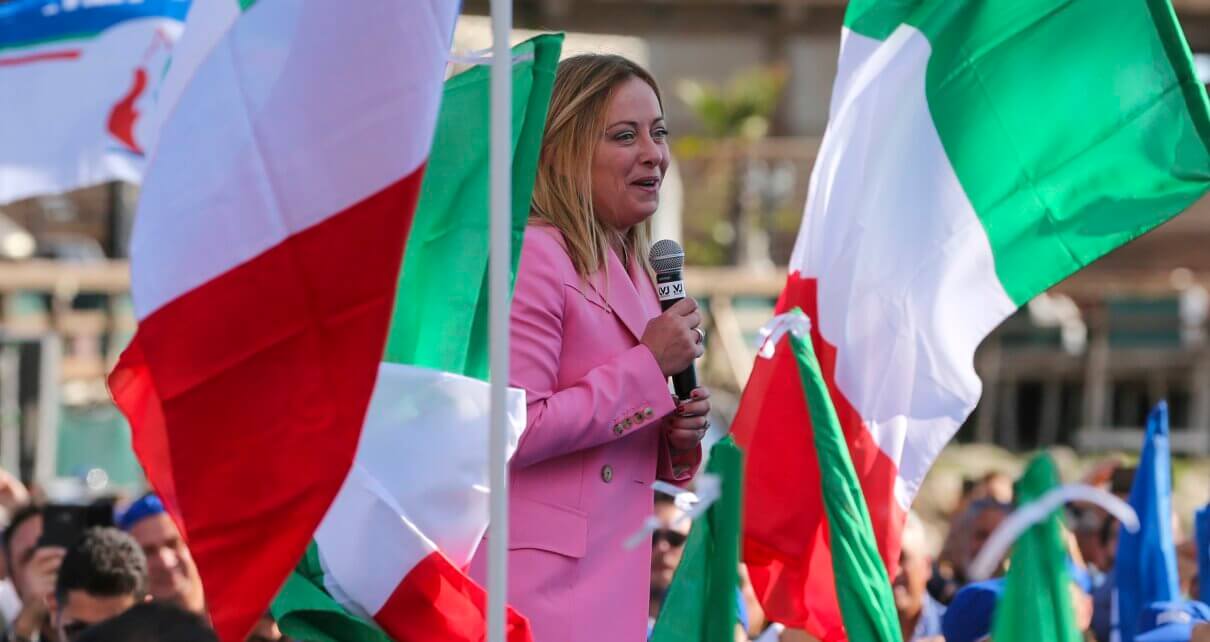A snap election was held in Italy this past month, as the previous Italian government—coined the Draghi Government after the name of its Prime Minister—found itself in crisis due to a rebellion within its ruling coalition.
Italy held general elections in 2018 after President Sergio Mattarella dissolved the Italian Parliament. The results of this election produced a hung parliament, a situation in which no pre-existing coalition or party could form a majority.
A politician by the name of Giuseppe Conte, then an Independent and later on a member of the Five Star Movement, was able to form a center-right governing coalition. This coalition collapsed in the 2019 Italian Government Crisis, and was replaced by a center-left coalition composed of the Five Star Movement, the Italian Democratic Party, the Free and Equal Party, alongside the Italia Viva Party, a splinter group of the Italian Democrats.
This new center left coalition ultimately faced the same fate as its predecessor. The 2021 Italian Government Crisis ended with politician Mario Draghi, a former President of the European Central Bank and also a political independent, forming his own cabinet to govern Italy.
This past summer, Draghi’s coalition fractured over disagreements pertaining to a €23 billion decree that aimed to provide stimulus to the Italian economy over disruptions caused by the long term effects of COVID-19 and the ongoing conflict in Ukraine. Despite surviving two no confidence votes, the politics behind them lead to Draghi tenuring his resignation to the Italian President. After doing so for a second time, President Mattarella accepted the resignation but asked him to stay on in a caretaker role until elections could be held on Sept. 25.
Following the dissolution of parliament, Italian politics shifted into a state of campaigning for the upcoming election. Early on in the campaign, Democratic Party Secretary Enrico Letta ruled out an alliance with Conte’s Five Star movement, citing the crisis as a point of no return in the relationship between the two parties. Conte went on to say that Letta was being a hypocrite and was acting arrogant, while also claiming right-wing parties Lega and Forza Italia bullied the left leaning Five Star Movement.
In the run up to the election, running coalitions became clear. Towards the end of July, the two political parties—Italian Left and Green Europe—announced their involvement with the center-left coalition Greens and Left Alliance. Left-wing parties Communist Refoundation Party, Power to the People, among other smaller and ideological related powers, formed the People’s Union coalition. Enrico Letta announced that Article One, the Solidary Democracy, and the Italian Socialist Party would run under the auspices of the Democratic Party.
The center-left and left wing parties ran on a variety of platforms, including expanding minimum wage, cannabis legalization, a wealth tax, elevating the Constitution of Italy as an anti-fascist document, among other policy suggestions.
Not long after the announcement by left wing parties, the Italian center-right also announced their coalitions. The center-right coalition, consisting of Lega, Forza Italia, Union of the Centre, Us with Italy, Coraggio Italia, and the Brothers of Italy, were able to maintain their bloc through an agreement outlining the share of districts and a mechanism for proposing who would be named to the Prime Ministership.
The center-right and right wing parties campaigned on enacting austerity measures, expanding the role of the President, alongside a flat tax and reform to income.
The 2022 General Election is notable for its record low turnout, with around 63.9 percent of the Italian population turning out to vote. This is around nine points below the election held in 2018.
When polls closed at 11, it became clear that the center-right coalition had won an absolute majority in the Italian parliament, having won 237 seats in the Italian Chamber of Deputies, alongside 115 seats in the Italian Senate.
Within the coalition, the Brothers of Italy by far won the largest percentage of votes at 26 Percent. Lega and Forza Italia came second and third within the coalition respectively at 8.7 percent and 8.1 percent. In accordance with the agreement between the right-wing parties, where the party with the largest percent of votes could move their candidate forward for the prime minister role, Brothers’ leader Giorgia Meloni has been cast as Italy’s next Prime Minister.
Max Lamberto Ph.D., Professor of Chemistry at Monmouth University and an Italian immigrant, said, “The Brothers of Italy were expected to win. My friends back home were fed up with the economy and the pandemic and the policies of the 5 Star, so they voted for the Brothers of Italy, hoping to bring change.”
Meloni’s views have been categorized as right-wing to far-right. She has labeled herself a conservative and Catholic. She is opposed to abortion, euthanasia, and gay marriage, with her claiming that marriage is only for male-female partners. Meloni is openly opposed to standing immigration policies present within the EU, granting fault to neo colonial policies of the West, in particular France, and is a critic of global financial institutions. Meloni supports NATO and is opposed to China’s rising influence, is generally seen as Eurosceptic, while supporting efforts to back Ukraine in its conflict with Russia.


